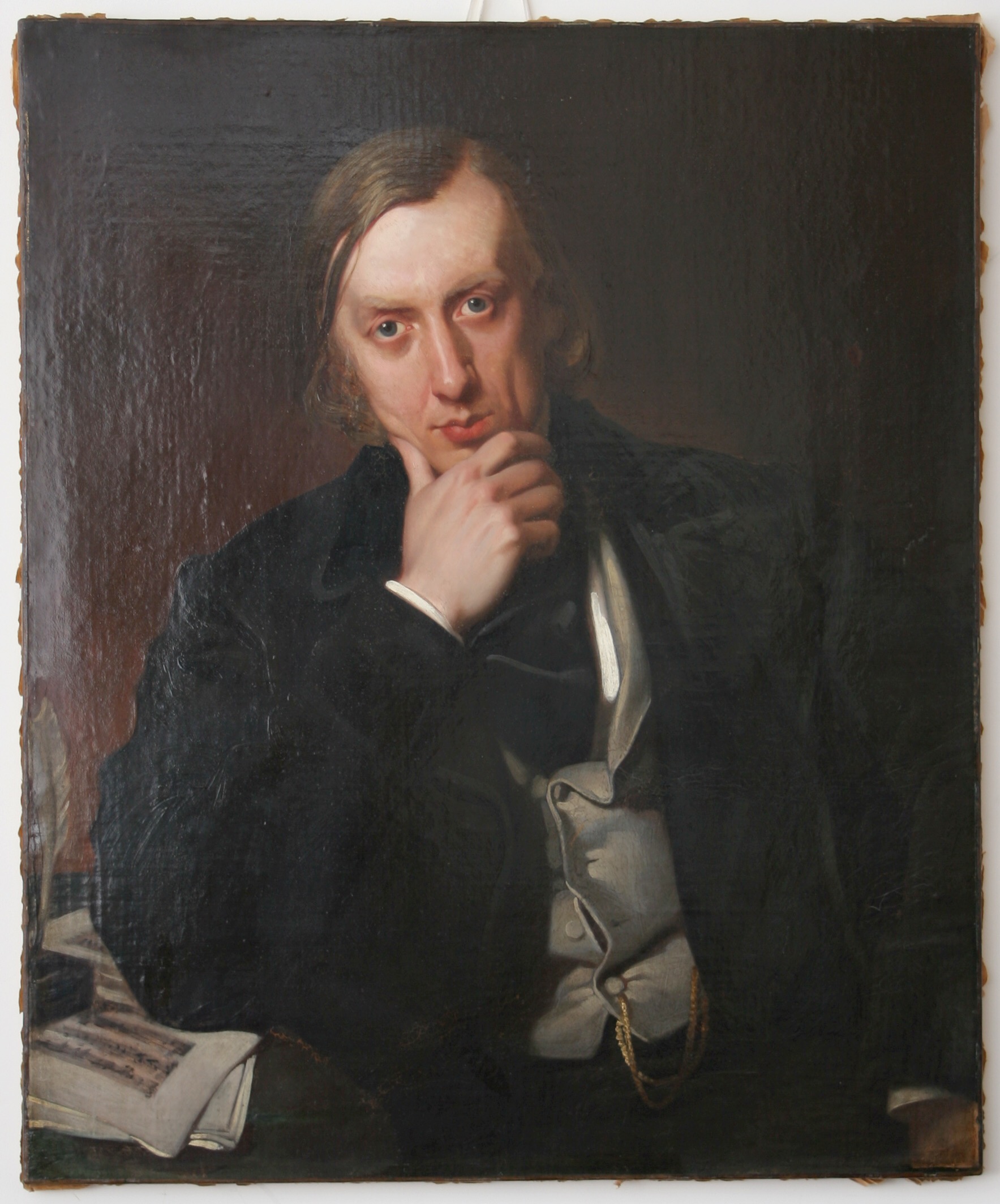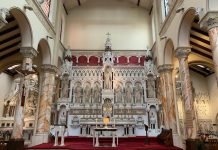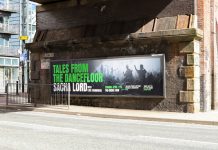“He has done more than any other musician to familiarise the people of the north with the orchestral works of all the great composers, and has accustomed them to a standard of merit in performance which is not likely to be excelled.”
wrote a commentator of Charles Halle just five years before his death in 1895 one hundred and twenty years ago this week, his funeral, he is buried in Weaste Cemetary, brought the city to a standstill but who was Charles Hallé and what was his legacy to Manchester?
We talk to the Halle archivist Eleanor Roberts about the man and his Renaissance in Manchester.
Karl Halle was born on 11 April 1819 in Hagen, Westphalia.He was born into a musical family, his father was a local conductor and organist and the young Karl had his first piano lessons at the age of three and soon showed extraordinary talent. He was says Eleanor by all accounts a child prodigy but was also not terribly well, suffering from long periods of illness.
His parents would protect him from the rigors of performing at an early age but in 1835 he went to Darmstadt to study, and the following year moved on to Paris to study music but where he was soon in demand as a pianist.
In Paris he met and mixed with musicians such as Richard Wagner, Chopin, Liszt, and Paganini, and Berlioz, as well as literary figures and artists, also meeting and marrying his first wife.
Revolution was to real out in Paris in 1848 prompting him to move his family to London.The capital he found was crowded with many European musicans and felt that in order to make a living he needed to move on.
He received a letter from a Manchester calico printer, Hermann Leo, whom he had met previously in Paris, informing him that Manchester was quite ripe to be taken in hand’ and that Leo considered him ‘the fittest man to stir the dormant taste for the art’ (quotes from his autobiography).
Manchester already had a German community and there is no doubt that in Elenaor’s view they banded together to bring Halle there with the carrot of offering their children for music lessons.
Manchester in 1848 was no musical backwater.The Gentlemen’s concerts ran a chamber sized orchestra, giving their own concerts in a subscription series on the site now occupied by the Midland Hotel.There were also local societies as well as concerts by visiting musicans but nothing, says Eleanor ” of the organized level that Halle was later to deliver to the city.”
Hallé accepted the offer and visited Manchester in September 1848 to play Beethoven ‘Emperor’ concerto. His first contribution to Mancunian musical life was to found a series of chamber concerts.
In November 1849 he was appointed conductor of the Gentlemen’s Concerts, which had been established about 1770, and re-formed the orchestra, although it is said that they were so bad, he almost gave up the post and returned to Paris.
He writes in his autobiography quite amusingly that he put his fingers in his ears at the beginning but over time he improved it, as well as working on recital concerts if his own where he would play the piano and bring other musicans and vocalists to perform a series of small concerts.
But when in 1857 Manchester staged the great Art Treasures Exhibition in Old Trafford, Hallé was engaged to lead an orchestra which would play there and from that moment, the direction of music in Manchester would change for ever.
Halle wanted to put on symphonies and large scale concerts, a relatively unusual move in the UK at the time.It was felt, says Eleanor that the ordinary person would not have the patience to sit through a full symphony.
At the end of the exhibition in October he decided to retain the Orchestra, collecting around him, in another move that was unusual at the time, a body of musicans who would stay together.
Many were local musicans, some from London and some from the continent but much of the talent was, perhaps surprisingly, home schooled.
The first concert of this new orchestra was to take place in January 1858, the date which marks the birth of what would become to be known as the Halle Orchestra.
The concerts were pioneering in that Halle insisted on keeping seats that could be purchased on the night, Halle wanted the ordinary person to come to the concerts, partly a result of aGerman background which had much less of an elitist view of society.
“He genuinely felt that music had the capacity to improve one’s life and and the desire for ordinary people in Manchester who were often facing fairly grim living conditions feel that music was there for them.”
The concerts were successful.Halle brought what was then fairly new pieces of music to the concerts, and he would often just pay extracts over a number of concerts before putting them on in their entirety.
One piece that he introduced in that way was Berlioz’ Damnation of Faust, that piece would be so established by the time of his death that it was performed in every subsequent season, something that Halle would be very proud of.
Halle would travel to London to perform during the spring and Summer, his Manchester season was, as it is now Autumn and Winter through to early spring. He had London pupils including members of the Royal Family, but he took his Manchester orchestra all over the country as well as performing individually.
‘Mr Halle’s band’ as it was often known, was very quickly regarded much more highly than many of the London Orchestras, one of the reasons says Eleanor was that he contracted people for a whole season, who become used to playing with each other and much more of a team.
Halle’s second legacy to Manchester was the founding of what would become the Royal Northern College of Music.Halle believed that there was no reason why Manchester could not become a centre of excellence in music. It was, believes Eleanor, a very natural thing for him to do, although ironically its name today is something that Halle didn’t want, preferring Manchester in the title.
Today just about everybody in Manchester knows the name Halle but maybe they don’t know the interconnection between the Orchestra and the college, neither do they perhaps appreciate the character of the man.
As for his legacy to the city, it starts with the fact that both of the institutions that he founded are still going strong and still adher to many of his principles.
Eleanor likes to thing that if Halle looked down on his orchestra today he would be pleased, especially the way that it still reaches out to the ordinary person.
Manchester will never forget Halle.
You can see the exhibition for free at the Central Library Details Here







